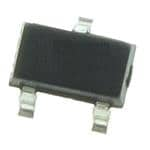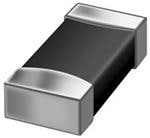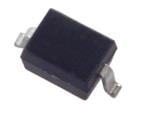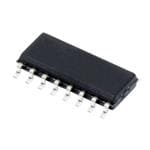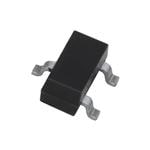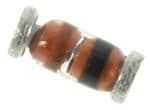
ISO7310CD
| Manufacturer Part Number: ISO7310CD | Manufacturer / Brand: Texas Instruments |
| Part of Description: Digital Isolators Robust EMC LwPwr Sng Ch 1/0 Digtl Isoltr | Lead Free Status / RoHS Status:  Lead free / RoHS Compliant Lead free / RoHS Compliant |
| Ship From: HK/Shen Zhen | Shipment Way: DHL/Fedex/TNT/UPS |
| Datasheets: |
Product parameters
| Manufacturer | Texas Instruments |
| RoHS | Details |
| Package / Case | SOIC-8 |
| Mounting Style | SMD/SMT |
| Series | ISO7310C |
| Packaging | Tube |
| Brand | Texas Instruments |
| Maximum Operating Temperature | + 125 C |
| Minimum Operating Temperature | – 40 C |
| Moisture Sensitive | Yes |
| Operating Supply Current | 3.8 mA |
| Product Type | Digital Isolators |
| Factory Pack Quantity | 75 |
| Unit Weight | 0.006141 oz |
| Number of Channels | 1 Channel |
| Supply Voltage – Min | 3 V |
| Supply Voltage – Max | 5.5 V |
| Propagation Delay Time | 32 ns |
Get in touch with us now
What is ISO7310C?
ISO7310C is an international standard for the physical properties of cork stoppers for use in food and beverage containers. The standard sets parameters for the size, shape, and other physical properties of the cork, as well as its chemical and microbiological composition. The standard is important for ensuring that cork stoppers adequately seal containers and protect their contents from contamination. It also helps to ensure that the cork is of high enough quality to not adversely affect the taste and smell of the food or beverage. The standard was first published by the International Organization for Standardization in 2001 and is periodically updated.
The ISO7310C standard is used by cork manufacturers, bottlers, and wineries to ensure that the cork produced meets the required standards. Adherence to the standard is important for businesses, as it can help to reduce the risk of product contamination and maintain consumer confidence in the food or beverage product. It is also important for protecting the environment, as cork is a natural, renewable, and biodegradable material.
How to use ISO7310CD?
ISO7310CD is used by cork manufacturers, bottlers, and wineries to ensure that the cork produced meets the required standards. Manufacturers should first read the standard to understand the requirements and then design and produce cork stoppers that meet the requirements. The standard can also be used to test the cork to ensure that it meets all necessary parameters. Tests should be conducted periodically to ensure that the cork continues to meet the standards and does not degrade over time. Bottlers and wineries should also use the standard to check that the cork stoppers received from their supplier meet the necessary requirements.
The ISO7310CD standard is important for ensuring that cork stoppers adequately seal containers and protect their contents from contamination. It is also important for protecting the environment, as cork is a natural, renewable, and biodegradable material. By using the standard, businesses can ensure that their cork is of high enough quality to protect their products and maintain consumer confidence in their food or beverage product.
Features and Specifications
The ISO7310CD standard sets parameters for the size, shape, and other physical properties of cork stoppers. The standard specifies the following:
• The maximum diameter and length of the cork
• The minimum diameter and length of the cork
• The minimum wall thickness of the cork
• The minimum and a maximum weight of the cork
• The minimum and maximum taper of the cork
• The minimum and maximum porosity of the cork
• The minimum and maximum hardness of the cork
• The minimum and maximum elasticity of the cork
• The minimum and maximum chemical composition of the cork
• The minimum and maximum microbiological composition of the cork
Customer Reviews and Scores
The ISO7310CD standard is widely used in the food and beverage industry and is generally well-regarded by customers. Customers appreciate the standard for helping to ensure that cork stoppers meet the necessary requirements and protect their products from contamination. The standard is also praised for its role in helping to protect the environment, as cork is a natural, renewable, and biodegradable material. Customers also appreciate the standard for helping to maintain consumer confidence in their food or beverage product.
Pros and Cons
Pros
• Helps to ensure that cork stoppers meet the necessary requirements
• Helps to protect products from contamination
• Helps to protect the environment
• Helps to maintain consumer confidence in the product
Cons
• Can be difficult to interpret and implement
• Can be costly to implement and maintain
FAQ
Q: What is the purpose of ISO7310CD?
A: The purpose of ISO7310CD is to ensure that cork stoppers adequately seal containers and protect their contents from contamination. It is also important for protecting the environment, as cork is a natural, renewable, and biodegradable material.
Q: What are the requirements of ISO7310CD?
A: The standard sets parameters for the size, shape, and other physical properties of the cork, as well as its chemical and microbiological composition. The standard specifies the maximum and minimum diameter and length of the cork, the minimum and maximum wall thickness of the cork, the minimum and maximum weight of the cork, the minimum and maximum taper of the cork, the minimum and maximum porosity of the cork, the minimum and maximum hardness of the cork, the minimum and maximum elasticity of the cork, the minimum and maximum chemical composition of the cork, and the minimum and maximum microbiological composition of the cork.
Conclusion
ISO7310CD is an important international standard for the physical properties of cork stoppers for use in food and beverage containers. The standard sets parameters for the size, shape, and other physical properties of the cork, as well as its chemical and microbiological composition. The standard is important for ensuring that cork stoppers adequately seal containers and protect their contents from contamination. It is also important for protecting the environment, as cork is a natural, renewable, and biodegradable material. The standard is widely used in the food and beverage industry and is generally well-regarded by customers.






